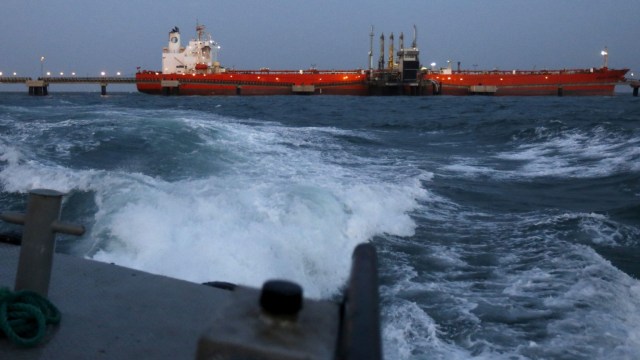
A Chinese logistics firm has emerged as a central player in the supply of sanctioned oil from Iran and Venezuela, even after it was blacklisted by Washington two years ago for handling Iranian crude, seven sources with knowledge of the deals told Reuters.
By qCaptain – Jonathan Saul
Jul 22, 2021
The more prominent role of China Concord Petroleum Co, also known as CCPC, and its expansion into trading with Venezuela, have not previously been reported and highlight the limitations of Washington’s system of restrictions, analysts say.
The details of the deals were described to Reuters by a range of individuals including one China-based source familiar with CCPC’s operations, Iranian officials and a source at Venezuela’s state-owned oil company PDVSA.
CCPC got involved in the Venezuelan oil trade this year through deals with small independent Chinese refineries known as teapots, according to monthly loading schedules, export schedules and invoices from April and May this year from PDVSA, as well as tanker tracking data and the PDVSA source.
The Hong Kong-registered firm has quickly become an important partner for Caracas, chartering ships in April and May carrying over 20% of Venezuela’s total oil exports in that period or nearly $445 million worth of crude, the PDVSA documents and tanker tracking data showed. CCPC did not charter any ships carrying Venezuelan oil in June, according to the documents.
Many refineries worldwide, including state-run players in China, stopped buying crude from Iran and Venezuela after the U.S. imposed sanctions, cutting millions of barrels per day from exports and billions of dollars from their income.
Dependent on oil revenues to run their countries, Tehran and Caracas have since engaged in an elaborate game of cat-and-mouse with Washington to keep exporting crude, employing numerous techniques to avoid detection, including ship-to-ship transfers, shell companies and middlemen who operate outside the U.S. financial sphere.
In the past year, CCPC has acquired at least 14 tankers to transport oil from Iran or Venezuela to China, two of the sources said.
A person reached by Reuters on CCPC’s registered phone number said she was unaware of any business activities of CCPC. She declined to be named. An email sent to an address for the company listed on the U.S. Treasury’s website did not get a response.
PDVSA and Venezuela’s oil ministry did not respond to a request for comment. Iran’s oil ministry also declined to comment.
“China maintains normal, legitimate trades with Iran and Venezuela under the framework of international law that shall deserve respect and protection,” a spokesman for China’s foreign ministry said in response to questions about the role of Chinese companies in the trading of sanctioned oil.
“China strongly opposes unilateral sanctions and urges the United States to remove the ‘long-arm jurisdiction’ on companies and individuals.”
‘Axes of Resilience’
U.S. officials, typically, do not move to interdict Iranian or Venezuelan oil shipments bought by Chinese or any international customers. But they can make it difficult for those involved in the trade to operate by barring U.S. citizens and companies from dealing with them, making them pariahs for western banks.
…
Read More: qCaptain – CCPC found moving Iran, Venezuela Oil to Chinese refineries
…

